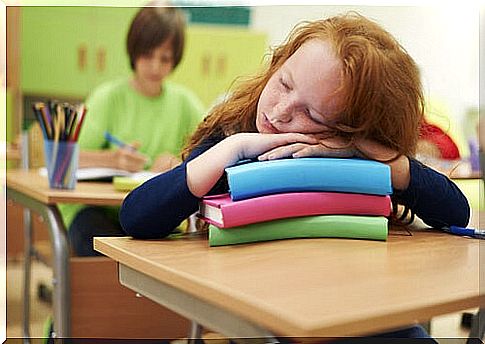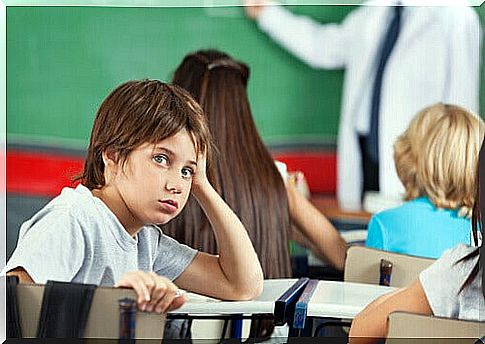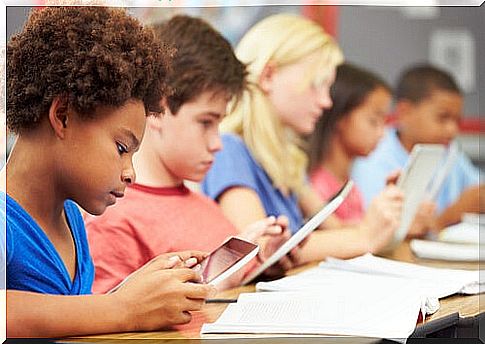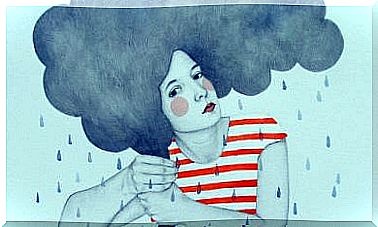The Repetition Of The School Year, A Success Or A Mistake?

The repetition of the school year is that storm that threatens on the horizon of many children, parents and teachers. In this sense, although repeating a year is usually seen as something negative, the truth is that we are not certain that this is the case; there is controversy and division of opinions about repetition.
Professionals in favor of repetition believe that repetition can be a real opportunity for the student, an opportunity to face the same challenges with a higher level of development.
On the other hand, in contrast, some professionals believe that repeating the school year increases the probability of dropping out . Likewise, it would harm the student’s self-esteem by being inferior to the peer group, who do promote to the following year.
It should be noted that according to the current law, the LOMCE, repetition is a mechanism to resort to as a last resort, when reinforcement and support have not served to overcome difficulties. In short, although the LOMCE considers it a necessary mechanism in some cases, there are different opinions about the effects it produces.
For this reason, this parity of beliefs about it invites us to ask ourselves “do you really get the benefits that are intended to repeat the year? ”We highlight, below, certain works by authors that we consider relevant on this topic.

After repetition, the student is likely to reach some maturity
The positive effects attributed to repetition are based on this mechanism as an aid to the student to acquire a certain maturity and develop basic skills and competencies, as indicated by experts from the Institute of Educational Evaluation and Research in their work “Effect of repetitions of the course in the teaching-learning process of the students ” .
Thus, they start from the idea that doing the same school year again would give the student enough time to reach enough maturity to allow him to repeat the year.
Does repetition increase or reduce school failure?
It is true that with repetition the educational system aims to prevent demotivation and abandonment from gaining ground in the student’s academic performance by trying to reach the level of their classmates and not achieving it. For this reason, the educational system considers repeating as a new opportunity to overcome difficulties and see itself as “capable” of achieving the necessary objectives.
Now, is it possible to avoid demotivation and, consequently, dropping out of school? In this sense, according to the study “Repeating and dropping out of school” by Grissom, Shepard and Jimersonde there is a strong association between repetition and school dropout.
According to this study, it could be affirmed that repetition increases the risk of abandonment, despite being the main objective of the LOMCE, which seeks with this measure precisely to prevent this abandonment from happening.
The OECD assures in the study based on the results of the PISA Report ” Are disadvantaged students more likely to repeat grades?” that repeating a year is stigmatizing among students and can affect their self-esteem. Therefore, based on the results of the PISA report, repeating the school year could lead to low self-esteem by not being “able” to pass at the level of peers.

Repeating the school year, right or wrong?
After reviewing the expert work on repetition, there is no consensus on the answer. That is, a group of experts advocates of repetition from the Institute of Educational Evaluation and Research, named above, argue that the promotion of underperforming students means sending them to an educational situation for which they are not prepared.
For this reason, they maintain that school repetition can be a stimulus to favor the willingness to study and increase self-esteem by improving basic skills not achieved until that moment.
However, the detractors of school repetition affirm “that students repeat is a failure of the system, not of the students”, as Andreas Schleicher, Director of Education of the OECD and main promoter of the PISA report, points out. In turn, New Zealand academic John Hattie concluded in his work on academic achievement that repetition was one of the worst educational measures.
To conclude, as we have mentioned previously, there is no clear evidence about whether repetition produces more positive or negative effects. What is clear, as stated by Westbury in his work “The effect of elementary grade retention on subsequent school achievement and ability”, that although repetition is beneficial for some students, it is not for the majority, and it is not possible know in advance which students it is going to benefit ”. In other words, we could only know the results of the measurement with some certainty after taking it.









